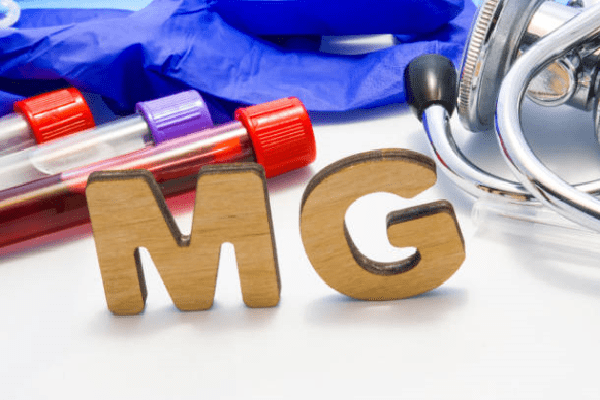Endocrinology >>>> Hypomagnesemia is a precursor to many diseases
Hypomagnesemia is a precursor to many diseases.

An insufficient amount of the trace element magnesium in the human body provokes many pathological conditions. This chemical element is one of the main participants in several hundred biochemical reactions that accompany metabolic processes. Magnesium is needed by the digestive system, cardiovascular activity, skeletal structures, the immune system, muscle and nerve fibers. A decrease in the level of magnesium in the body slows down almost all vital microbiological processes, reduces the production of immune agents of cellular and humoral immunity and lowers the body's resistance to pathogenic microflora.
Cardiac ischemia, heart attack, arrhythmias are the result of a lack of the trace element magnesium. Lipid metabolism disorder is a deficiency of magnesium compounds. Disruption of enzymatic activity is an insufficient amount of magnesium. Such metabolic disorders of trace elements as hypophosphatemia, hypocalcemia, osteopenia, calcification, develop against the background of a decrease in the level of magnesium ions in the blood serum. Blood pressure levels are inversely related to magnesium levels in the body. Magnesium is also involved in the processes of binding insulin, its activation, and contributes to the retention of potassium ions in cells.
The result of a low level of magnesium ions in the blood (hypomagnesemia) are: osteoporosis, arterial hypertension, coronary heart disease, rickets, convulsive syndrome, skin diseases, obesity, diabetes mellitus, alopecia, decreased mental abilities, chronic fatigue, muscle weakness.
The causes of hypomagnesemia lie not only in the lack of magnesium from food or vitamin supplements. Hypomagnesemia can develop as a result of a violation of the metabolism of magnesium (congenital or acquired), since magnesium is a very whimsical element in terms of its assimilation by the body, and special conditions are required for its absorption (absorption). Phosphates and fats, simultaneously entering the body with magnesium, slow down and even neutralize the mechanism of magnesium absorption. Therefore, the consumption of magnesium from sources such as fatty meat, butter, fatty milk, fatty sour cream is not effective and useless. This fact should be taken into account when drawing up a diet for those suffering from hypomagnesemia.
Hypomagnesemia, as a result of the disease, can develop against the background of:
- Chronic malnutrition,
- Violations of the absorption of magnesium in the intestine,
- Dyspepsia,
- Ulcerative colitis,
- Stressful conditions,
- Disorders of the parathyroid hormone produced by the parathyroid glands,
- Alcoholism,
- Taking medications that inhibit the absorption of magnesium (proton pump inhibitors, cisplatin, aminoglycosides),
- With the abuse of diuretics ( diuretics of plant and synthetic origin),
- Renal failure,
- Chronic pyelonephritis,
- Diseases of the pancreas,
- Primary hyperaldosteronism,
- Increased sweating,
- Pregnancy.
Signs of hypomagnesemia:
- Drowsiness (in severe cases - lethargy),
- Dizziness,
- Limb tremors,
- Deterioration of the properties of memory,
- Convulsions,
- arrhythmia,
- High blood pressure,
- Anorexia,
- dyspepsia,
- Nausea,
- Imbalance of movements.
Hypomagnesemia is dangerous because it provokes the excretion of potassium from the body, improper distribution of calcium and phosphorus compounds, promotes miscarriage, sudden death of a newborn, premature birth, the development of depressive conditions, accompanies broncho- and laryngospasm, myocardial electrical instability .
Treatment of hypermagnesemia is based on a diet that takes into account the absorption of magnesium, taking vitamin and mineral complexes (for example, Panangin or other drugs containing magnesium salts - magnesium sulfate, magnesium chloride), magnesium gluconate), magnesium aspartate (magnesium aspartate). Magnesium preparations can be injected or taken in tablets. For severe hypomagnesemia and / or for digestive problems, injections are preferable. Magnesium preparations should be taken under the supervision of a blood magnesium test. Normally, the concentration of magnesium ions in the blood serum should not be lower than 0.7 - 0.8 mmol per liter.

Read

Read



























